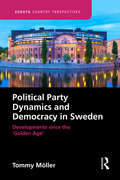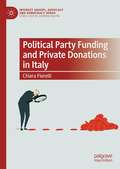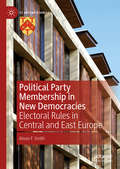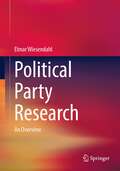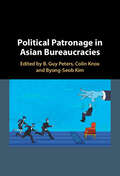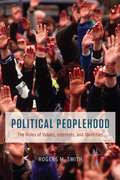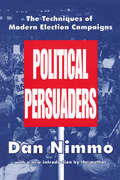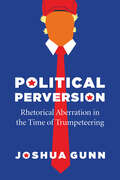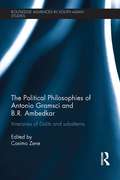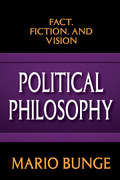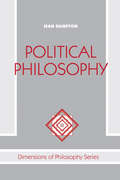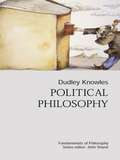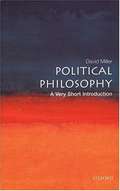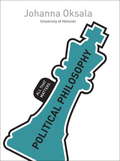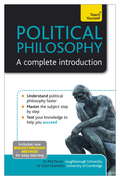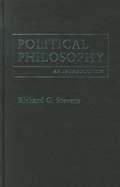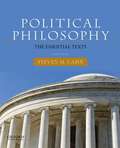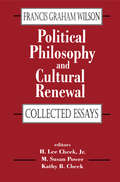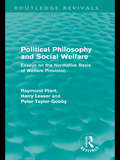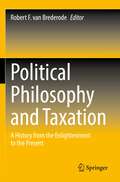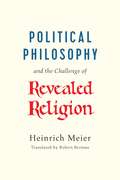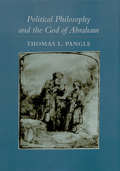- Table View
- List View
Political Party Dynamics and Democracy in Sweden: Developments since the ‘Golden Age’ (Europa Country Perspectives)
by Tommy MollerSweden has often been described as a democratic forerunner, with one of the world's most stable party systems and with a well-functioning parliamentary system. However, the political landscape in Sweden has undergone a rapid change in recent years. The institutions of the political system – not least political parties – appear from a historical perspective to have become partly dysfunctional. The previously stable party system has become unstable. Consequently, it has become more difficult to form governments, and more difficult for governments to govern. The famous culture of consensus has been replaced by a harsher and more confrontational political climate; the tone in political debate has become more aggressive. During the so-called `golden age' of the party system, which lasted for a few decades from the middle of the twentieth century, parties could successfully mobilize broad and well-defined social interests with strong collective identities. Now, other conditions apply that have dramatically changed the role of parties in the democratic process. Parties have gone from being member-based popular movements to becoming professionalized voter-orientated campaign machines. Short-sightedness and a focus on median voters mean that the established parties have become increasingly similar, and populist parties have had great success in recent decades as a consequence. This volume, aimed at political scientists and those interested in discussion and analysis of Swedish political party dynamics, focuses on political parties in Sweden, how they have changed and what the changes mean in a wider sense.
Political Party Funding and Private Donations in Italy (Interest Groups, Advocacy and Democracy Series)
by Chiara FiorelliDespite any evidence against it, political parties still represent the most important collective actor in a democratic political system. Their role in representing pluralism and their electoral centrality is not undermined, even when it is strongly questioned. As long as political parties can be understood as representative actors articulating political demands, this book focuses on the capacity of Italian political parties to mobilize resources and financial resources in particular. Through the analysis of private financial donations to political parties, a neglected source of information that will be fundamental in the near future, the author assesses their connective capability with specific interests’ representatives in the last decades in order to provide evidence of their changing representational role as collective actors.
Political Party Membership in New Democracies: Electoral Rules in Central and East Europe (St Antony's Series)
by Alison F. SmithThis book explores the impact of electoral rules on political party development in Central and East Europe. It finds that ‘high district magnitude’ proportional electoral systems encourage centralised organisational development and campaigning – where communication with voters is conducted primarily via mass, social and digital media – while small electoral districts stimulate grassroots campaigning. As a result, low magnitude electoral systems are more likely to create an active role for party members, stimulating membership recruitment. The book further examines how parties organise and campaign on the ground. The analysis of in-depth surveys and interviews with party elites in Estonia, Lithuania and Slovakia sheds light on areas of party life that are rarely examined, including party fundraising. Overall, the effects of electoral systems on party organisation and campaigning reflect patterns previously observed in Western Europe, demonstrating that a degree of convergence has occurred.
Political Party Research: An Overview
by Elmar WiesendahlThe book by the well-known German party researcher Elmar Wiesendahl presents the development, theoretical perspectives, research approaches, and fields of investigation in party research in light of the state of the art.
Political Peoplehood: The Roles of Values, Interests, and Identities
by Rogers M. SmithFor more than three decades, Rogers M. Smith has been one of the leading scholars of the role of ideas in American politics, policies, and history. Over time, he has developed the concept of "political peoples," a category that is much broader and more fluid than legal citizenship, enabling Smith to offer rich new analyses of political communities, governing institutions, public policies, and moral debates. This book gathers Smith's most important writings on peoplehood to build a coherent theoretical and historical account of what peoplehood has meant in American political life, informed by frequent comparisons to other political societies. From the revolutionary-era adoption of individual rights rhetoric to today's battles over the place of immigrants in a rapidly diversifying American society, Smith shows how modern America's growing embrace of overlapping identities is in tension with the providentialism and exceptionalism that continue to make up so much of what many believe it means to be an American. A major work that brings a lifetime of thought to bear on questions that are as urgent now as they have ever been, Political Peoplehood will be essential reading for social scientists, political philosophers, policy analysts, and historians alike.
The Political Persuaders: The Techniques Of Modern Election Campaigns
by Dan NimmoFor better or worse, political image is now more important to electoral victory than a spontaneous exchange of conflicting views over matters of substantive policies. Campaign managers, polling specialists, and communication consultants define issues, set agendas, and explore policy options primarily for electoral gain. In short, campaign contrivances replace substance at all phases and levels of electoral contests. Political estrangement, as illustrated by declining voting levels, may well be a by-product of deceptive political consultant and political journalistic practices rather than Americans being frustrated by insoluble problems.In The Political Persuaders, Dan Nimmo analyzes and critiques the emerging political industry of professional political management and consulting. His volume was the first book-length treatment to do so; it is a seminal work on the subject for both academic scholars and political practitioners. In his new introduction, Nimmo hones his critique in light of the past thirty years and its effects on campaign organization, research, and communication. He assesses changes in campaign technology, stable and shifting practices of candidate marketing, and the consequences for democratic governance inherent in professionally mediated campaigns at the close of the twentieth century.Nimmo succinctly reviews his well-nigh prophetic conclusions, determining that trends discovered in 1970 not only persist, but continue to intensify with a vengeance. Although evolving campaign techniques claim to involve citizens in the electoral process, the actual involvement is more cosmetic than real-this, Nimmo argues is the principle source of deepening popular disappointment and a general political apathy. This timely volume should be read by political scientists, policymakers, and those in the fields of mass communication and journalism.Dan Nimmo has been a professor of political science, journalism, and communication at various institutions, notably the University of Missouri, University of Tennessee, and the University of Oklahoma. He is currently distinguished visiting professor of political science at Baylor University. He is the author or editor of many works including Popular Images of Politics and Newsgathering in Washington.
Political Perversion: Rhetorical Aberration in the Time of Trumpeteering
by Joshua GunnWhen Trump became president, much of the country was repelled by what they saw as the vulgar spectacle of his ascent, a perversion of the highest office in the land. In his bold, innovative book, Political Perversion, rhetorician Joshua Gunn argues that this “mean-spirited turn” in American politics (of which Trump is the paragon) is best understood as a structural perversion in our common culture, on a continuum with infantile and “gotcha” forms of entertainment meant to engender provocation and sadistic enjoyment. Drawing on insights from critical theory, media ecology, and psychoanalysis, Gunn argues that perverse rhetorics dominate not only the political sphere but also our daily interactions with others, in person and online. From sexting to campaign rhetoric, Gunn advances a new way to interpret our contemporary political context that explains why so many of us have difficulty deciphering the appeal of aberrant public figures. In this book, Trump is only the tip of a sinister, rapidly growing iceberg, one to which we ourselves unwittingly contribute on a daily basis.
The Political Philosophies of Antonio Gramsci and B. R. Ambedkar: Itineraries of Dalits and Subalterns (Routledge Advances in South Asian Studies)
by Cosimo ZeneBridging two generations of scholarship on social inequality and modern political forms, this book examines the political philosophies of inclusion of subalterns/Dalits in Gramsci and Ambedkar’s political philosophies. It highlights the full range of Gramsci’s ‘philosophy of praxis’ and presents a more critical appreciation of his thought in the study of South Asian societies. Equally, Ambedkar’s thought and philosophy is put to the forefront and acquires a prominence in the international context. Overcoming geographical, cultural and disciplinary boundaries, the book gives relevance to the subalterns. Following the lead of Gramsci and Ambedkar, the contributors are committed, apart from underscoring the historical roots of subalternity, to uncovering the subalterns’ presence in social, economic, cultural, educational, literary, legal and religious grounds. The book offers a renewed critical approach to Gramsci and Ambedkar and expands on their findings in order to offer a present-day political focus into one of the most crucial themes of contemporary society. This book is of interest to an interdisciplinary audience, including political theory, post-colonial studies, subaltern studies, comparative political philosophy, Dalit studies, cultural studies, South Asian studies and the study of religions.
Political Philosophy
by Ronald BeinerHannah Arendt's last philosophical work was an intended three-part project entitled The Life of the Mind. Unfortunately, Arendt lived to complete only the first two parts, Thinking and Willing. Of the third, Judging, only the title page, with epigraphs from Cato and Goethe, was found after her death. As the titles suggest, Arendt conceived of her work as roughly parallel to the three Critiques of Immanuel Kant. In fact, while she began work on The Life of the Mind, Arendt lectured on "Kant's Political Philosophy," using the Critique of Judgment as her main text. The present volume brings Arendt's notes for these lectures together with other of her texts on the topic of judging and provides important clues to the likely direction of Arendt's thinking in this area.
Political Philosophy: Fact, Fiction, and Vision
by Mario BungePolitical philosophy is not a well-defined field. It hovers between political theory and classical philosophy. Few early political thinkers could have anticipated the most pressing political issues of our time: the need to stop global warming; the reduction of nuclear armaments; the rise of inequality between individuals and nations; and the struggle against authoritarianism, particularly when it comes disguised as democracy or as socialism. Here, celebrated philosopher Mario Bunge masterfully integrates socio-political theory into a philosophical exploration of power and resource distribution in the world today.Bunge contends that even recent political thinkers have generally failed to address the political underpinnings of topical issues. Environmental degradation, gender and race discriminations, participative democracy, nationalism, imperialism, the North-South divide, resource wars, and the industrial-military complex have all largely been bypassed in political thinking. Even connections between poverty and environmental degradation, and between inequality and bad health, have escaped the attention of those who would call themselves political thinkers.Bunge believes that political philosophers should pay more attention to social indicators, such as the standard index of income inequality and the United Nations human development index. It is pointless to write about redistributive policies unless we have a shared understanding of current wealth distribution. This is, in short, a modern treatise on sociopolitical concerns.
Political Philosophy: Contractarianism In Moral And Political Philosophy (Dimensions Of Philosophy Ser.)
by Jean HamptonIn this sophisticated yet accessible text, Hampton neatly synthesizes the classical tradition, the giants of the modern period, the dominant topics of the 20th century, as well as the new questions and concerns that are just beginning to rewrite contemporary political philosophy. }Political philosophy, perhaps even more than other branches of philosophy, calls for constant renewal to reflect not just re-readings of the tradition but also the demands of current events. In this lively and readable survey, Jean Hampton has created a text for our time that does justice both to the great traditions of the field and to the newest developments. In a marvelous feat of synthesis, she links the classical tradition, the giants of the modern period, the dominant topics of the twentieth century, and the new questions and concerns that are just beginning to rewrite contemporary political philosophy.Hampton presents these traditions in an engaging and accessible manner, adding to them her own views and encouraging readers to critically examine a range of ideas and to reach their own conclusions. Of particular interest are the discussions of the contemporary liberalism-communitarianism debates, the revival of interest in issues of citizenship and nationality, and the way in which feminist concerns are integrated into all these discussions. Political Philosophy is the most modern text on the topic now available, the ideal guide to what is going on in the field. It will be welcomed by scholars and students in philosophy and political science, and it will serve as an introduction for readers from outside these fields.
Political Philosophy
by Dudley KnowlesThis comprehensive introduction to the major thinkers and topics in political philosophy explores the philosophical traditions which continue to inform our political judgements.Dudley Knowles introduces the ideas of key political thinkers including Hobbes, Locke, Marx and Mill and influential contemporary thinkers such as Berlin, Rawls and Nozick. He outlines central problems in political philosophy and encourages the reader to critically engage with all the issues discussed.The individual chapters discuss and analyse:* utilitarianism* liberty* rights* justice* obligation* democracyPolitical Philosophy is ideally suited to students taking introductory courses in political theory and philosophy.
Political Philosophy: A Very Short Introduction
by David MillerThis book introduces readers to the key concepts of political philosophy: authority, democracy, freedom and its limits, justice, feminism, multiculturalism, and nationality. Accessibly written and assuming no previous knowledge of the subject, it encourages the reader to think clearly and critically about the leading political questions of our time. Miller first investigates how political philosophy tackles basic ethical questions such as 'how should we live together in society?' He furthermore looks at political authority, discusses the reasons society needs politics in the first place, explores the limitations of politics, and asks if there are areas of life that shouldn't be governed by politics. Moreover, he explores the connections between political authority and justice, a constant theme in political philosophy, and the ways in which social justice can be used to regulate rather than destroy a market economy. In his travels through this realm, Miller covers why nations are the natural units of government and wonders if the rise of multiculturalism and transnational co-operation will change all this, and asks in the end if we will ever see the formation of a world government.
Political Philosophy: All That Matters
by Johanna OksalaWhat is political philosophy? A philosophical study of political ideas such as authority, freedom, justice and democracy? An inquiry into the best form of government? An attempt to rationally justify forms of authority? Johanna Oksana asks exactly these questions as she opens this brilliant new guide to political philosophy. Rather than attempting to provide the reader with a definite answer, the book invites readers to recognize many of the issues encountered in everyday life as political, the outcome of human practices that incorporate power relations, social norms and obligations. It suggests that political philosophy should be understood as an open-ended, critical project that to some extent concerns everyone. The book employs an original structure which will be a huge help to both students and general readers seeking to understand the topic. Each chapter, which moves chronologically from antiquity to the twentieth century, focuses on selected classic texts in political philosophy, which are briefly introduced and analysed. The texts then function as a springboard for a discussion of central contemporary issues in political philosophy.
Political Philosophy: Teach Yourself
by Phil Parvin Clare ChambersWritten by Phil Parvin and Clare Chambers, who are current political philosophy lecturers and leading researchers, Political Philosophy - The Essentials is designed to give you everything you need to succeed, all in one place. It covers the key areas that students are expected to be confident in, outlining the basics in clear jargon-free English, and then providing added-value features like summaries of key thinkers, and even lists of questions you might be asked in your seminar or exam. The book's structure follows that of most university courses on political philosophy, by looking at the essential concepts within political philosophy (freedom, equality, power, democracy, rights, the state, political obligation), and then looking at the ways in which piolitical philosophers have used these fundamental concepts in order to tackle a range of normative political questions such as whether the state has a responsibility to alleviate inequalities, and what interest liberal and demovratic states should take in the cultural or religious beliefs of citizens. Teach Yourself titles employ the 'Breakthrough method', which is designed specifically to overcome problems that students face. - Problem: 'I find it difficult to remember what I've read.'; Solution: this book includes end-of-chapter questions and summaries, - Problem: 'Most books mention important other sources, but I can never find them in time.'; Solution: this book includes key texts and case studies are summarised, complete with fully referenced quotes ready to use in your essay or exam. - Problem: 'Lots of introductory books turn out to cover totally different topics than my course.'; Solution: this book is written by a current university lecturer who understands what students are expected to know.
Political Philosophy
by Richard G. StevensThis book by Richard G. Stevens is a comprehensive introduction to the nature of political philosophy. It offers definitions of philosophy and politics, showing the tension between the two and the origin of political philosophy as a means of resolution of that tension. Plato and Aristotle are examined in order to see the search for the best political order. Inquiry is then made into political philosophy's new tension brought about by the growth of revealed religion in the Middle Ages. It then examines the changes introduced by modernity and gives an overview of postmodern political thought. The book covers the most influential philosophers and directs readers to the classics of political philosophy, guiding them in studying them. It is an approachable introduction to a complex subject, not just a history of it. It is a point of entry into the subject for students and for others as well.
Political Philosophy (3rd Edition): The Essential Texts
by Steven M. CahnPolitical Philosophy: The Essential Texts is ideal for survey courses in political philosophy. Offering wide coverage from antiquity to the present, this historically organized collection presents the most significant works from nearly 2,500 years of political philosophy.
Political Philosophy: All That Matters (All That Matters)
by Johanna OksalaWhat is political philosophy? A philosophical study of political ideas such as authority, freedom, justice and democracy? An inquiry into the best form of government? An attempt to rationally justify forms of authority? Johanna Oksana asks exactly these questions as she opens this brilliant new guide to political philosophy. Rather than attempting to provide the reader with a definite answer, the book invites readers to recognize many of the issues encountered in everyday life as political, the outcome of human practices that incorporate power relations, social norms and obligations. It suggests that political philosophy should be understood as an open-ended, critical project that to some extent concerns everyone. The book employs an original structure which will be a huge help to both students and general readers seeking to understand the topic. Each chapter, which moves chronologically from antiquity to the twentieth century, focuses on selected classic texts in political philosophy, which are briefly introduced and analysed. The texts then function as a springboard for a discussion of central contemporary issues in political philosophy.
Political Philosophy and Cultural Renewal: Collected Essays of Francis Graham Wilson (Library Of Conservative Thought Ser.)
by Francis WilsonFrancis Graham Wilson was a central figure in the revival of interest in political philosophy and American political thought in the mid-twentieth century. While he is best known as a Catholic writer and conservative theorist, his most significant contribution is his original interpretation of the development of American politics. Central to his thought was a process of self-interpretation by the citizenry, a quest for ultimate meaning turning to a divine, transcendent, basis of history and shared experience. Although Wilson's writings were extensive and influential, they have not been readily available for decades.
Political Philosophy and Social Welfare: Essays on the Normative Basis of Welfare Provisions (Routledge Revivals)
by Raymond Plant Peter Taylor-Gooby Anthony LesserThis re-issued work, first published in 1980, represents a work of normative political philosophy which argues positively for the centrality of the obligation to meet the various demands of social need in our society, and will be of particular interest to students of politics, philosophy, social politics and administration. Bringing the insights of analytical Political Philosophy to bear on the issues of social welfare and welfare provision, the authors discuss such issues as the basis of the sense of stigma involved in the receipt of welfare benefits, the right of welfare and the concepts of ‘community’.
Political Philosophy and Taxation: A History from the Enlightenment to the Present
by Robert F. van BrederodeThis book explores how taxation is related to the role of the state and its relationship with its constituents, the concept of private property rights, the concepts of societal fairness and justice, and the battle between the individual and the collective. This book appeals to students and scholars who want to know how philosophers in the past and present think about taxation, and how their thinking has developed through cross-influencing. There exists no comprehensive study providing such an overview. This book is a foundational study on the philosophical justification of taxation (qualitative aspect) and the normative qualifications required of tax law to constitute tax that is just and fair (distributive or quantitative aspect). The latter includes evaluation of what type of tax is morally correct or acceptable to realize distributive justice. This book covers periods from the Enlightenment era until the present. The philosophers are grouped together in schools of thought and each chapter except for chapter 1 and chapter 13, are is dedicated to a specific philosophical school. Moreover, this book aims to provide an overview of each school of thinking and the individual philosophers, including placing them in the context of their times. The book has particular importance as the study of taxation is an underdeveloped area of political and legal philosophy.
Political Philosophy and the Challenge of Revealed Religion
by Heinrich Meier Robert BermanHeinrich Meier’s guiding insight in Political Philosophy and the Challenge of Revealed Religion is that philosophy must prove its right and its necessity in the face of the claim to truth and demand obedience of its most powerful opponent, revealed religion. Philosophy must rationally justify and politically defend its free and unreserved questioning, and, in doing so, turns decisively to political philosophy. In the first of three chapters, Meier determines four intertwined moments constituting the concept of political philosophy as an articulated and internally dynamic whole. The following two chapters develop the concept through the interpretation of two masterpieces of political philosophy that have occupied Meier’s attention for more than thirty years: Leo Strauss’s Thoughts on Machiavelli and Jean-Jacques Rousseau’s Social Contract. Meier provides a detailed investigation of Thoughts on Machiavelli, with an appendix containing Strauss’s original manuscript headings for each of his paragraphs. Linking the problem of Socrates (the origin of political philosophy) with the problem of Machiavelli (the beginning of modern political philosophy), while placing between them the political and theological claims opposed to philosophy, Strauss’s most complex and controversial book proves to be, as Meier shows, the most astonishing treatise on the challenge of revealed religion. The final chapter, which offers a new interpretation of the Social Contract, demonstrates that Rousseau’s most famous work can be adequately understood only as a coherent political-philosophic response to theocracy in all its forms.
Political Philosophy and the God of Abraham
by Thomas L. PangleIn this book noted scholar Thomas L. Pangle brings back a lost and crucial dimension of political theory: the mutually illuminating encounter between skeptically rationalist political philosophy and faith-based political theology guided ultimately by the authority of the Bible. Focusing on the chapters of Genesis in which the foundation of the Bible is laid, Pangle provides an interpretive reading illuminated by the questions and concerns of the Socratic tradition and its medieval heirs in the Christian, Jewish, and Islamic worlds. He brings into contrast the rival interpretive framework set by the biblical criticism of the modern rationalists Hobbes and Spinoza, along with their heirs from Locke to Hegel. The full meaning of these diverse philosophic responses to the Bible is clarified through a dialogue with hermeneutic discussions by leading political theologians in the Judaic, Muslim, and Christian traditions, from Josephus and Augustine to our day. Profound and subtle in its argument, this book will be of interest not only to students and scholars of politics, philosophy, and religion but also to thoughtful readers in every walk of life who seek to deepen their understanding of the perplexing relationship between religious faith and philosophic reason.
Political Philosophy: A Complete Introduction: Teach Yourself
by Phil Parvin Clare ChambersWritten by Phil Parvin and Clare Chambers, who are current political philosophy lecturers and leading researchers, Political Philosophy - The Essentials is designed to give you everything you need to succeed, all in one place. It covers the key areas that students are expected to be confident in, outlining the basics in clear jargon-free English, and then providing added-value features like summaries of key thinkers, and even lists of questions you might be asked in your seminar or exam. The book's structure follows that of most university courses on political philosophy, by looking at the essential concepts within political philosophy (freedom, equality, power, democracy, rights, the state, political obligation), and then looking at the ways in which piolitical philosophers have used these fundamental concepts in order to tackle a range of normative political questions such as whether the state has a responsibility to alleviate inequalities, and what interest liberal and demovratic states should take in the cultural or religious beliefs of citizens. Teach Yourself titles employ the 'Breakthrough method', which is designed specifically to overcome problems that students face. - Problem: 'I find it difficult to remember what I've read.'; Solution: this book includes end-of-chapter questions and summaries, - Problem: 'Most books mention important other sources, but I can never find them in time.'; Solution: this book includes key texts and case studies are summarised, complete with fully referenced quotes ready to use in your essay or exam. - Problem: 'Lots of introductory books turn out to cover totally different topics than my course.'; Solution: this book is written by a current university lecturer who understands what students are expected to know.
